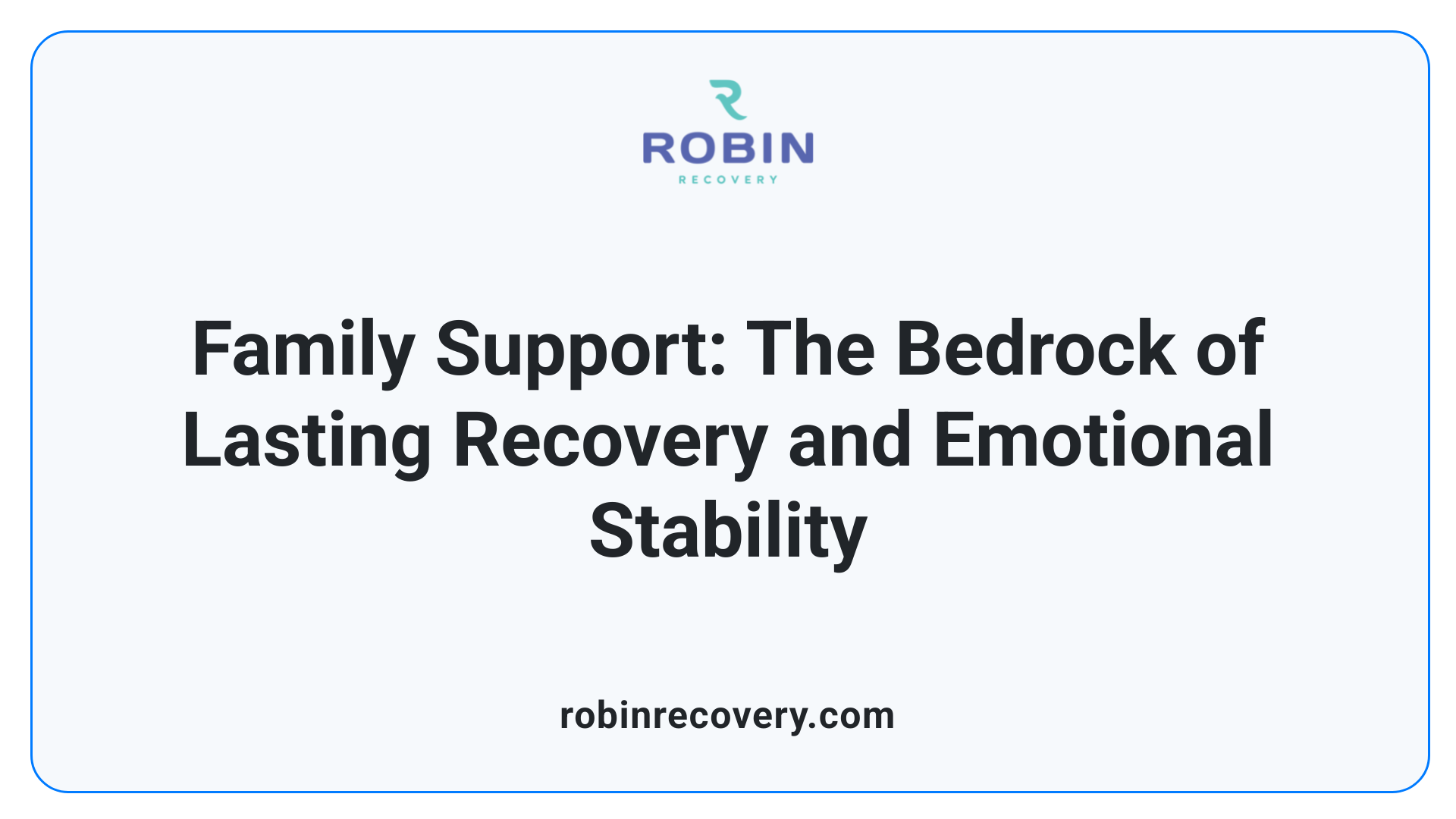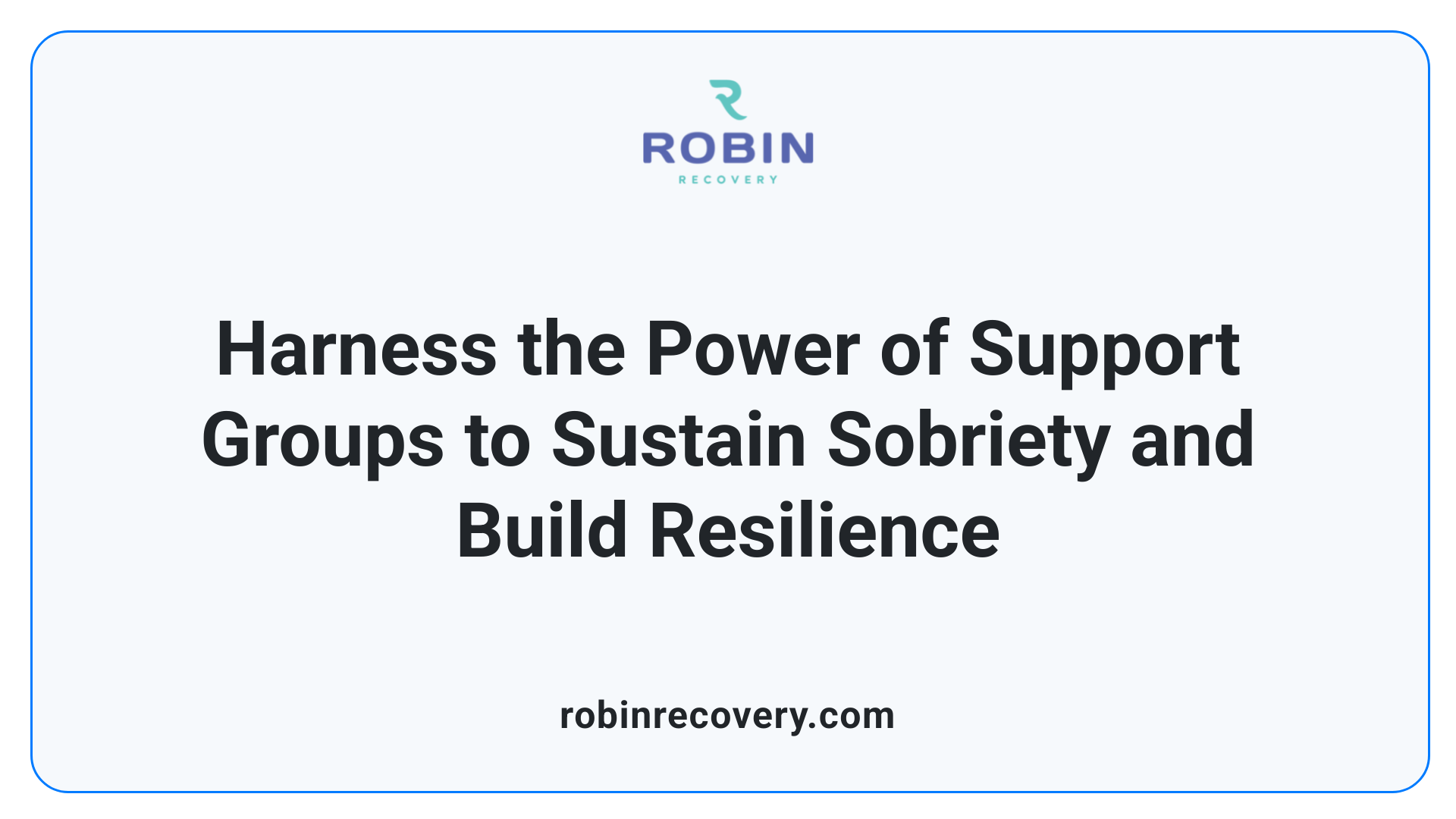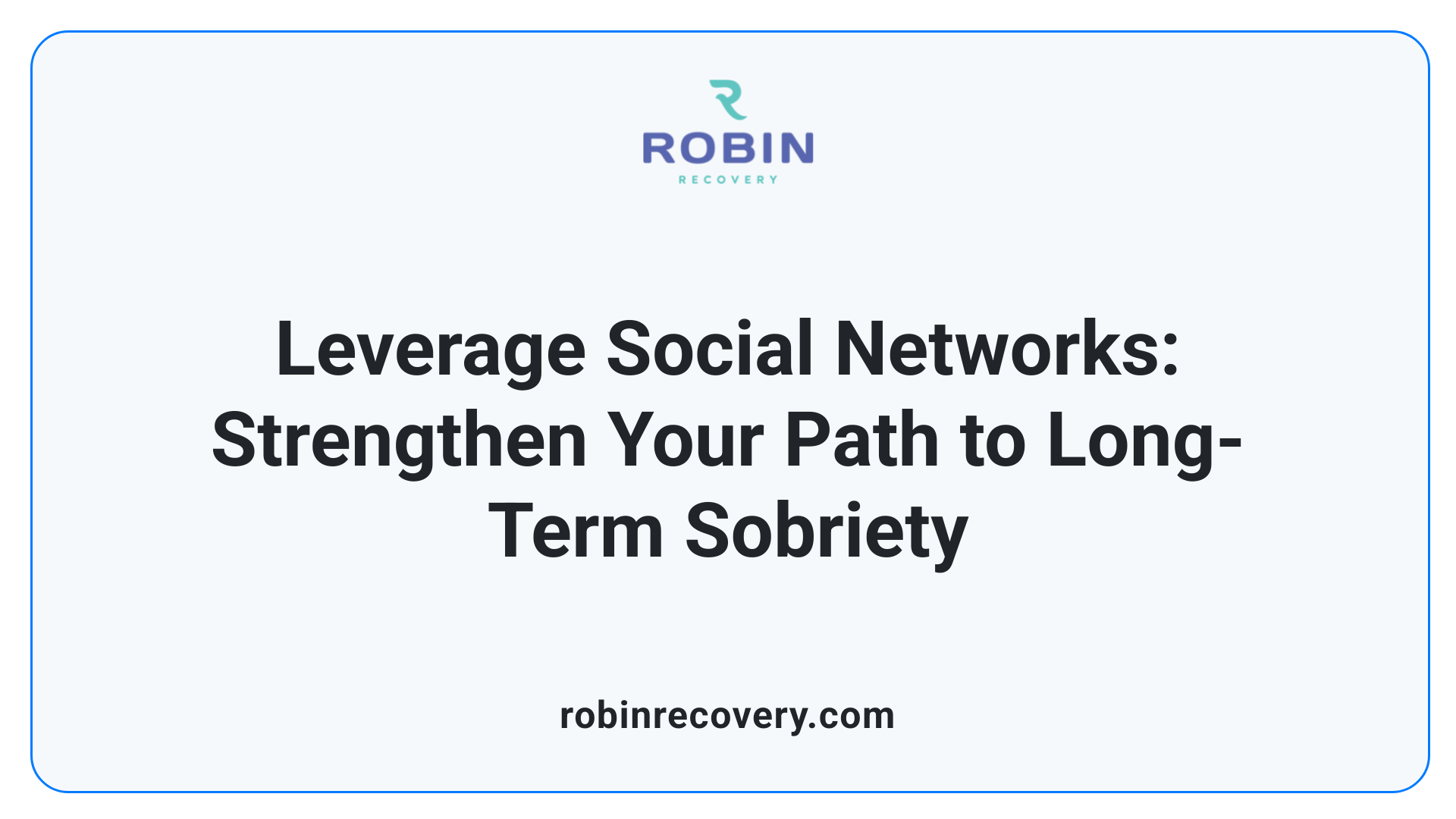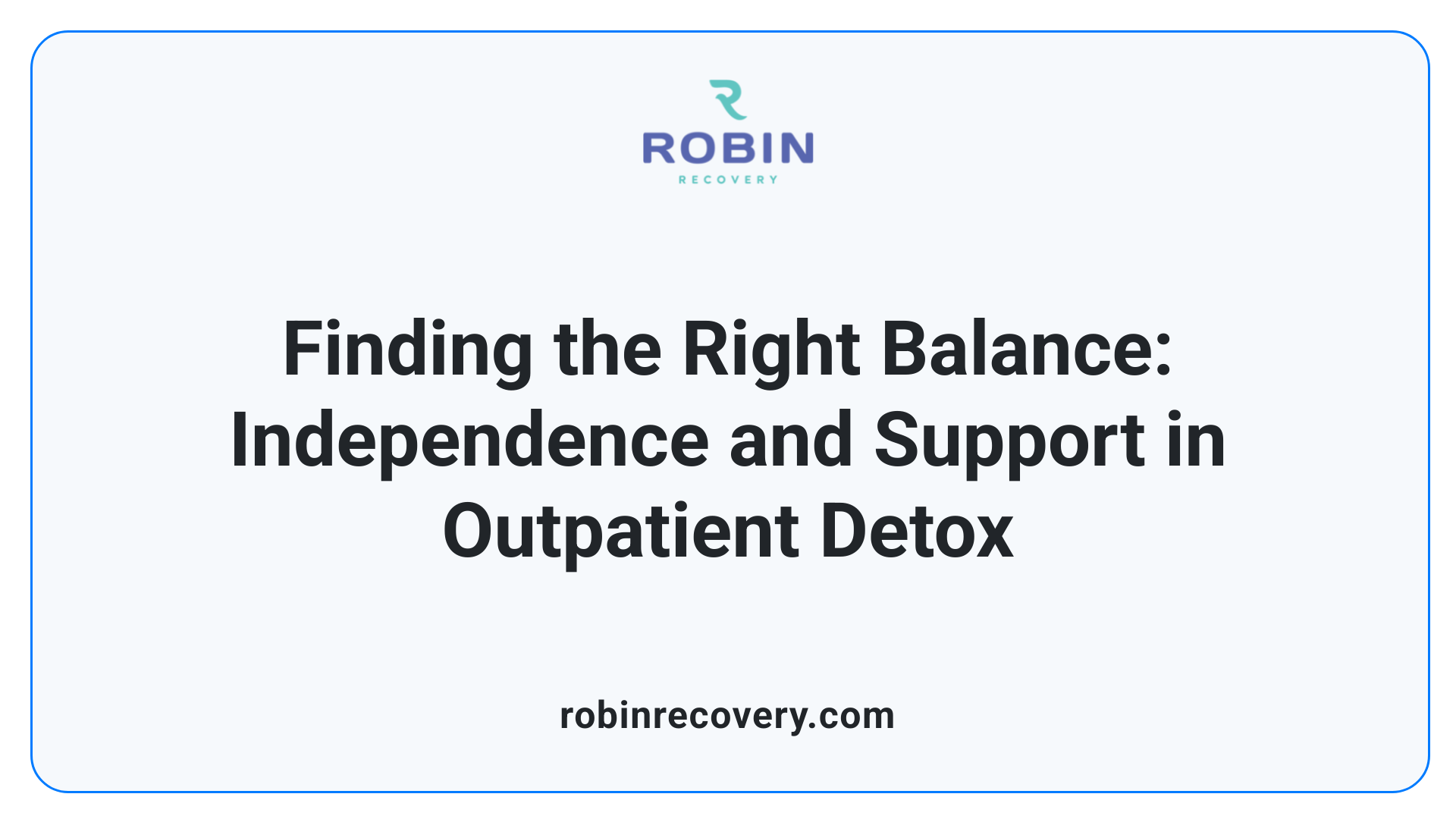The Importance of a Support System During Ambulatory Detox

Understanding the Foundation of Recovery
In the journey of overcoming substance use disorders, ambulatory, or outpatient, detoxification offers the advantages of flexibility and autonomy while necessitating robust support systems. This crucial phase in treatment involves managing withdrawal symptoms while transitioning to a sustainable recovery path. The effectiveness and safety of this journey heavily rely on the presence and quality of a support system, from family and friends to professional and community resources. This article explores the multifaceted benefits of support systems during ambulatory detox, underscoring their indispensable role in successful recovery.
Why Support Systems are Essential in Recovery
Why are support systems important in recovery?
Support systems play a crucial role in the journey toward sobriety and mental well-being. They offer emotional reassurance, practical help, and a sense of stability, making the challenging process of recovery more manageable.
Having a network of trusted friends, family, or professional support groups can significantly reduce feelings of isolation and loneliness that often accompany addiction recovery. These networks provide encouragement, motivation, and accountability, which are vital for maintaining long-term sobriety.
Organizations like SAMHSA’s National Helpline exemplify the importance of accessible support. In 2020 alone, the helpline received over 830,000 calls, highlighting the immense demand for immediate assistance, information, and treatment referrals. This free and confidential service connects individuals and families to local treatment facilities, support groups, and community resources.
The Helpline operates round-the-clock, available in both English and Spanish, ensuring help is always within reach. Such continuous support not only facilitates immediate crisis management but also fosters trust and security during the often turbulent recovery process.
Support systems also extend beyond emergency assistance. They help individuals access ongoing care, participate in therapy, and join community support groups like Alcoholics Anonymous (AA) or Narcotics Anonymous (NA). These groups provide shared experiences and peer encouragement, which research shows can lower relapse rates and promote resilience.
In summary, support networks—whether through professional helplines or community groups—serve as a safety net during recovery. They empower individuals to stay committed to their treatment plans, cope with setbacks, and build a sustainable, healthy lifestyle.
The Critical Role of Family in Recovery

What is the role of family support in the recovery process?
Family involvement is a crucial element in the journey toward overcoming addiction. Support from family members provides emotional stability, encouragement, and a sense of belonging, which are vital for individuals working through recovery. This support helps reinforce positive behaviors, fosters open communication, and builds trust, all of which are essential to maintaining sobriety.
Family participation often involves therapy and education, where members learn about addiction, its effects, and effective ways to support their loved ones. Such involvement can strengthen relationships strained by addiction, creating a more supportive environment that encourages ongoing efforts at sobriety.
Furthermore, family support contributes to a positive treatment outlook by reducing feelings of isolation and stigma. When loved ones understand the challenges faced during recovery, they can offer tailored support that addresses emotional needs and promotes resilience.
Research emphasizes that addiction is often a family disease, meaning that its treatment benefits from a family-centered approach. Engaging family members in therapy and support groups enhances the overall recovery process, making it more sustainable and effective.
Benefits of therapy and education for families
Family therapy and educational programs are essential in equipping loved ones with the skills and knowledge needed to support someone in recovery. Therapy sessions provide a safe space to address conflicts, set healthy boundaries, and develop communication strategies.
Education helps family members understand addiction as a complex medical condition rather than a moral failing, reducing blame and fostering empathy. It also teaches practical ways to aid in relapse prevention and deal with challenging behaviors.
Offering ongoing support, guidance, and education can lessen the emotional burden on families, improve relationships, and encourage sustained recovery. By empowering families with information and tools, these programs contribute significantly to creating a stable, supportive environment that is conducive to long-term sobriety.
In summary, family involvement, communication, and education are powerful components of effective addiction treatment. They lay the foundation for a healthier life post-recovery, emphasizing that healing is a collective process that benefits from love, understanding, and shared commitment.
Support Groups: A Pillar of Strength in Recovery

How do support groups benefit the recovery process?
Support groups play a vital role in fostering long-term sobriety and emotional well-being. They provide individuals with a sense of community where shared experiences create a foundation of understanding and empathy. Participants often feel less isolated, which can significantly reduce feelings of loneliness and emotional distress associated with addiction or mental health struggles.
Engaging in these groups helps reinforce positive coping strategies as members exchange practical advice and support. This mutual support not only boosts motivation but also enhances self-esteem and confidence in maintaining sobriety.
Online and virtual support groups have broadened access, making it easier for people to participate regardless of location or mobility issues. These platforms offer flexibility in scheduling and can be a valuable resource for continuous encouragement.
However, while many benefits exist, potential risks like privacy concerns or misinformation can arise. It’s important for participants to select reputable groups and remain cautious about sharing personal details. Overall, support groups serve as an empowering tool that complements professional treatment, helping individuals build resilience and achieve lasting recovery.
Mechanisms of Social Support in Recovery Outcomes
How does social support improve recovery?
Social support plays a vital role in helping individuals maintain sobriety and achieve lasting recovery from substance use disorders. It provides emotional encouragement during difficult times, helping individuals cope with cravings, stress, and setbacks. Emotional guidance from supportive friends, family, or peers creates a sense of belonging and reduces feelings of isolation, which are often linked to relapse.
Moreover, social support offers practical assistance, such as help with daily responsibilities, transportation to therapy, or participation in sober activities. This tangible aid makes navigating recovery easier and less stressful. By fostering positive behavioral choices, social networks motivate individuals to stay engaged in treatment and support their ongoing mental health needs.
Participation in mutual help organizations like Alcoholics Anonymous (AA) and other support groups is especially impactful. These groups create a community where shared experiences bolster confidence, provide accountability, and reinforce the commitment to sobriety.
What role do AA and similar organizations play?
AA and similar organizations are cornerstone elements in long-term recovery strategies. They offer a peer-led environment where individuals can share struggles, successes, and strategies for staying sober. The sense of camaraderie and mutual understanding fosters resilience and reduces feelings of loneliness.
These organizations also provide structured programs based on 12-step principles, which encourage personal accountability and spiritual growth. Regular attendance at meetings enhances treatment retention, improves self-efficacy, and promotes the adoption of healthier lifestyles.
Through these supportive environments, members gain not only emotional strength but also access to information about coping skills, relapse prevention, and community resources. This network of support creates a resilient foundation that helps individuals manage challenges and sustain abstinence over the long term.
How does social support influence recovery outcomes?
Social support influences recovery through several interconnected pathways. It offers emotional guidance that strengthens individuals’ motivation and resilience. Access to information and tangible resources helps address practical barriers to sobriety.
It encourages engagement with sober activities and creates accountability, which are essential for maintaining behavioral changes. Socially connected individuals are more likely to stick with treatment plans and less likely to relapse.
Furthermore, support networks contribute to improved quality of life and psychological well-being, reducing stress and anxiety that can trigger substance use. The presence of a cohesive and positive social environment—be it through family, friends, or support groups—enhances self-efficacy and creates a culture of sobriety.
How do support systems operate at different levels?
Support systems influence recovery at both individual and communal levels. On a personal level, close relationships with family and friends provide direct emotional encouragement and practical assistance. At a community or house level, peer groups and support organizations create a shared sense of purpose and collective resilience.
These structures foster a supportive environment where individuals feel safe to express challenges and celebrate milestones. They also promote the development of healthy routines, social skills, and coping strategies essential to long-term abstinence.
In summary, social support mechanisms—ranging from personal relationships to organized support groups—are fundamental in shaping recovery trajectories. They bolster emotional well-being, enhance treatment adherence, and foster a sustainable path to sobriety.
Professional Support in Ambulatory Detox
Role of professional supervision
In outpatient detox programs, the presence of trained medical professionals is vital to ensure safety and effectiveness. These experts continuously monitor patients, manage withdrawal symptoms, and respond promptly to any health complications. Supervision by physicians and nurses provides a secure environment, reducing risks such as seizures or severe physical symptoms.
Medical and therapeutic guidance in outpatient detox
Besides medical oversight, therapeutic guidance plays a crucial role in outpatient detox. Trained counselors and therapists work with individuals, offering counseling sessions like cognitive-behavioral therapy (CBT) to cope with psychological challenges. This holistic approach helps address emotional issues related to addiction, increases motivation, and prepares patients for ongoing recovery. Support from the care team and engagement in therapy sessions create a foundation for successful detox and relapse prevention.
Building a Strong Support System for Ambulatory Detox
How to create an effective support system for outpatient detox
A solid support system is vital for success during ambulatory detox, which allows individuals to manage detox at home. Start by involving trusted family members or friends who understand your recovery goals. Their emotional support, encouragement, and practical help—such as transportation to medical appointments or assistance with daily tasks—can ease the process.
Seek guidance from healthcare professionals who can connect you with support groups like AA, therapy, or community resources. Continual communication with your care team ensures proper monitoring of symptoms and medication adherence. Emphasize building a network rooted in trust, understanding, and accountability.
How to avoid pitfalls of weak support networks
Weak or unsupportive networks may increase risks, such as feelings of isolation, relapse, or unmet needs. Be mindful of unhealthy relationships or friends who may tempt substance use. Avoid over-reliance on unreliable individuals or neglecting to communicate your needs.
Develop strategies to strengthen your network, such as attending regular support meetings, engaging in family therapy, and setting boundaries with people who do not support your recovery. Ensuring your support system includes diverse and dependable members helps create a resilient foundation for sustained sobriety.
Step Action Benefit 1 Identify trusted supporters Emotional reinforcement 2 Engage in support groups Shared experiences and motivation 3 Communicate needs clearly Better tailored assistance 4 Set boundaries with unsupportive influences Reduced temptation 5 Involve family in therapy Improved understanding and cooperation
A strong, well-structured support system enhances the safety and effectiveness of outpatient detox, helping individuals navigate challenges and maintain recovery.
The Intersection of Social Connections and Recovery

Addressing isolation and motivation
Building a strong support system plays a crucial role in successful recovery. Feelings of loneliness and isolation can hinder progress, making encouragement from loved ones vital. Motivation is often bolstered through positive social interactions, fostering a sense of belonging.
Leveraging social networks for recovery
Support networks, including family, friends, and community groups, provide emotional backing and accountability. Participation in groups like Alcoholics Anonymous or peer support programs enhances resilience. These connections help individuals stay committed, share experiences, and develop coping strategies during their recovery journey.
Balancing Autonomy and Support in Ambulatory Detox

What are the challenges and benefits of outpatient detox?
Outpatient detox allows individuals to undergo withdrawal in a familiar environment while maintaining daily routines. However, managing withdrawal symptoms at home can be challenging without direct medical supervision.
On the positive side, outpatient programs are cost-effective, flexible, and support the person’s independence. They empower individuals to actively participate in their recovery while still receiving professional support.
How do strong support systems contribute to success?
Support from family, friends, and community groups plays a crucial role. It provides emotional encouragement, accountability, and practical help, making it easier to stick with treatment. Success stories often showcase how involvement in support networks like family therapy or peer groups significantly boosts recovery outcomes.
The Unyielding Power of Support
As individuals embark on the challenging yet rewarding path of ambulatory detoxification, the strength and presence of a reliable support system can significantly impact their success. From family members and support groups to professional guidance, each element plays a pivotal role in reducing the vulnerability that comes with recovering outside a structured inpatient environment. By nurturing and fortifying these networks, patients not only increase their chances of detox success but also establish foundations for long-term sobriety and well-being. Emphasizing collaborative support and empathy can make the pivotal difference in the journey to recovery.
References
- SAMHSA's National Helpline | SAMHSA
- 2 Settings, Levels of Care, and Patient Placement - NCBI
- What Happens During Alcohol & Substance Abuse Detox?
- The Transformative Power of Ambulatory Detoxification
- Chapter 5—Specialized Substance Abuse Treatment Programs - NCBI
- Detoxification - Henry Ford Health
- The Importance of Medical Supervision in Drug & Alcohol Detox
- Importance of Detox Before Inpatient Treatment
- Outpatient Drug & Alcohol Detox in Atlanta | Empowered Recovery
